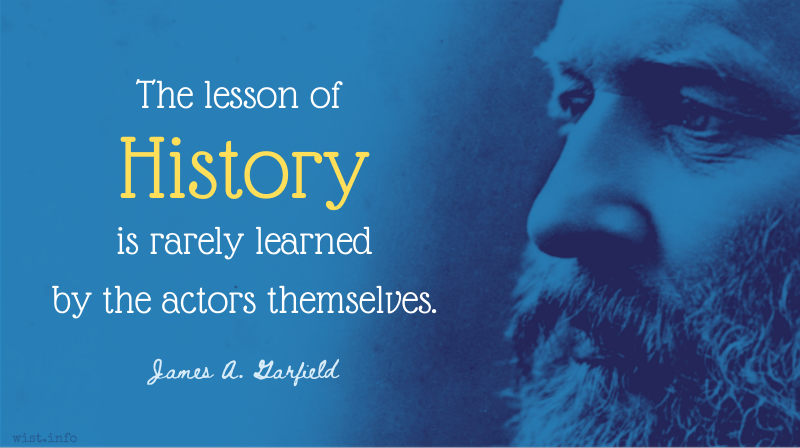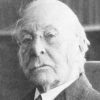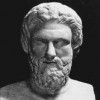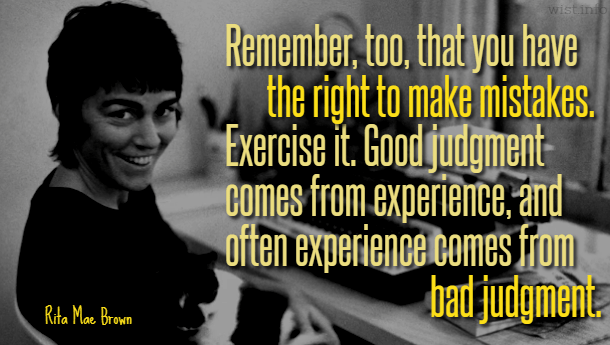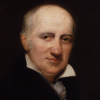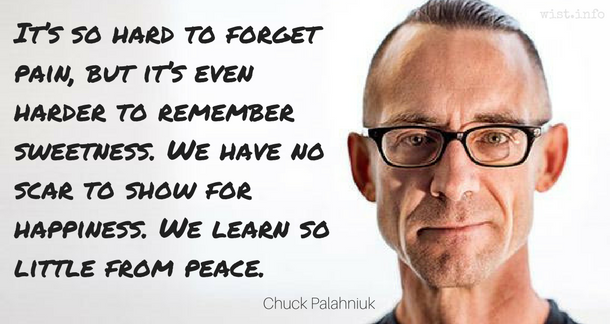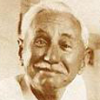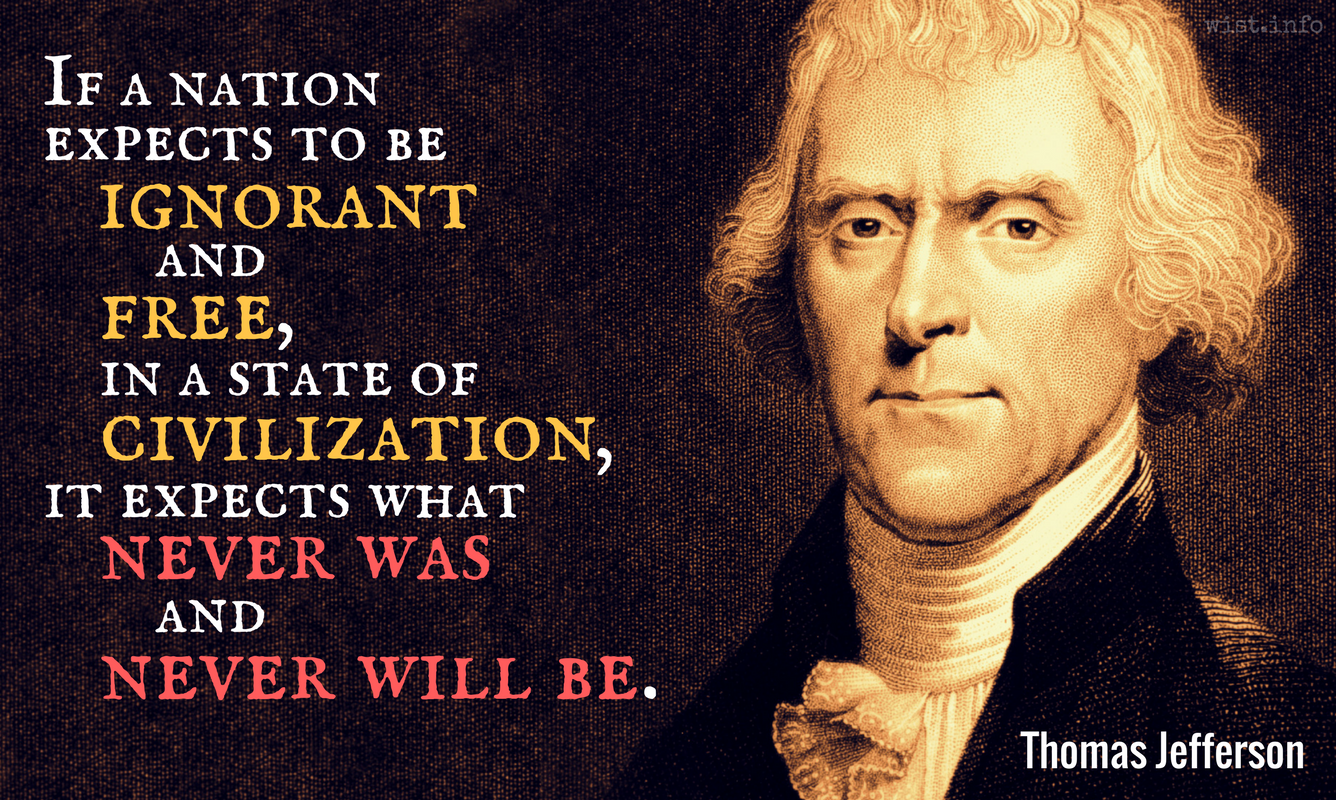Quotations about:
learning
Note not all quotations have been tagged, so Search may find additional quotes on this topic.
No,
it’s no disgrace for a man, even a wise man,
to learn many things and not to be too rigid.
You’ve seen trees by a raging winter torrent,
how many sway with the flood and salvage every twig,
but not the stubborn — they’re ripped out, roots and all.[ἀλλ᾽ ἄνδρα, κεἴ τις ᾖ σοφός, τὸ μανθάνειν
πόλλ᾽, αἰσχρὸν οὐδὲν καὶ τὸ μὴ τείνειν ἄγαν.
ὁρᾷς παρὰ ῥείθροισι χειμάρροις ὅσα
δένδρων ὑπείκει, κλῶνας ὡς ἐκσῴζεται,
τὰ δ᾽ ἀντιτείνοντ᾽ αὐτόπρεμν᾽ ἀπόλλυται.]Sophocles (496-406 BC) Greek tragic playwright
Antigone, l. 710ff [Haemon] (441 BC) [tr. Fagles (1982), l. 794ff]
(Source)
Ancient Greek. Alternate translations:
But that a man, how wise soe'er, should learn
In many things and slack his stubborn will,
This is no derogation. When the streams
Are swollen by mountain-torrents, thou hast seen
That all the trees wich bend them to the flood
Preserve their branches from the angry current,
While those which stem it perish root and branch.
[tr. Donaldson (1848)]
The wisest man will let himself be swayed
By others' wisdom and relax in time.
See how the trees beside a stream in flood
Save, if they yield to force, each spray unharmed,
But by resisting perish root and branch.
[tr. Campbell (1873)]
'Tis no disgrace even to the wise to learn
And lend an ear to reason. You may see
The plant that yields where torrent waters flow
Saves every little twig, when the stout tree
Is torn away and dies.
[tr. Storr (1859)]
No, even when a man is wise, it brings him no shame to learn many things, and not to be too rigid. You see how the trees that stand beside the torrential streams created by a winter storm yield to it and save their branches, while the stiff and rigid perish root and all?
[tr. Jebb (1891)]
True wisdom will be ever glad to learn,
And not too fond of power. Observe the trees,
That bend to wintry torrents, how their boughs
Unhurt remain; while those that brave the storm,
Uprooted torn, shall wither and decay.
[tr. Werner (1892)]
No, though a man be wise, 'tis no shame for him to learn many things, and to bend in season. Seest thou, beside the wintry torrent's course, how the trees that yield to it save every twig, while the stiff-necked perish root and branch?
[tr. Jebb (1917)]
It is not reason never to yield to reason!
In flood time you can see how some trees bend,
And because they bend, even their twigs are safe,
While stubborn trees are torn up, roots and all
[tr. Fitts/Fitzgerald (1939), l. 570ff]
It is no weakness for the wisest man
To learn when he is wrong, know when to yield.
So, on the margin of a flooded river
Trees bending to the torrent live unbroken,
While those that strain against it are snapped off.
[tr. Watling (1947), l. 608ff]
A man, though wise, should never be ashamed
of learning more, and must unbend his mind.
Have you not seen the trees beside the torrent,
the ones that bend them saving every leaf,
while the resistant perish root and branch?
[tr. Wyckoff (1954)]
There's no disgrace, even if one is wise,
In learning more, and knowing when to yield.
See how the trees that grow beside a torrent
Preserve their branches, if they bend; the others,
Those that resist, are torn out, root and branch.
[tr. Kitto (1962)]
But a wise man can learn a lot and never be ashamed;
He knows he does not have to be rigid and close-hauled.
You've seen trees tossed by a torrent in a flash flood:
If they bend, they're saved, and every twig survives,
But if they stiffen up, they're washed out from the roots.
[tr. Woodruff (2001)]
But for a man, even if he is wise, to go on learning
many things and not to be drawn too taut is no shame.
You see how along streams swollen from winter floods
some trees yield and save their twigs,
but others resist and perish, root and branch.
[tr. Tyrell/Bennett (2002)]
On the contrary, it is no shame for even a wise man to continue learning. Nor should a man be obstinate. One can see the trees on the heavy river-banks. Those that bend with the rushing current, survive, whereas those bent against it are torn, roots and all.
[tr. Theodoridis (2004)]
For any man,
even if he’s wise, there’s nothing shameful
in learning many things, staying flexible.
You notice how in winter floods the trees
which bend before the storm preserve their twigs.
The ones who stand against it are destroyed,
root and branch.
[tr. Johnston (2005), l. 804ff]
No, it's no disgrace for a man, even a wise man, to learn many things and not to be too rigid. You see how, in the winter storms, the trees yield that save even their twigs, but those who oppose it are destroyed root and branch.
[tr. Thomas (2005)]
Many much-learned men have no intelligence.
[Πολλοὶ πολυμαθέες νοῦν οὐκ ἔχουσιν.]
Democritus (c. 460 BC - c. 370 BC) Greek philosopher
Frag. 64 (Diels) [tr. Freeman (1948)]
(Source)
Diels citation "64. (190 N.) DEMOKRATES. 29."; collected in Joannes Stobaeus (Stobaios) Anthologium III, 4, 81. Freeman notes this as one of the Gnômae, from a collection called "Maxims of Democratês," but because Stobaeus quotes many of these as "Maxims of Democritus," they are generally attributed to the latter.
Alternate translations:
- "There are many who know many things, yet are lacking in wisdom." [tr. Bakewell (1907)]
- "Many who have learned much possess no sense." [tr. Barnes (1987)]
- "Many who have learned a lot do not have a mind." [tr. @sentantiq (2018)]
- "Many, though widely read, possess no sense." [Source]
Many who have not learned wisdom live wisely.
[Πολλοὶ λόγον μὴ μαθόντες ζῶσι κατὰ λόγον. ]
Democritus (c. 460 BC - c. 370 BC) Greek philosopher
Frag. 53 (Diels) [tr. Bakewell, 1907)]
(Source)
Diels citation "53. (122a N.) DEMOKRATES. 19.1."; collected in Joannes Stobaeus (Stobaios) Anthologium II, 15, 33. Often combined with fragment 53a. Bakewell lists this under "The Golden Sayings of Democritus." Freeman notes this as one of the Gnômae, from a collection called "Maxims of Democratês," but because Stobaeus quotes many of these as "Maxims of Democritus," they are generally attributed to the latter.
Alternate translations:
- "Many who have not learnt Reason, nevertheless live according to reason." [tr. Freeman (1948)].
- "Many live according to reason even if they have not learned it." [tr. @sentantiq (2020)]
- "Many do not learn reason but live in accordance with reason." [tr. Barnes (1987)]
For the man who rules efficiently must have obeyed others in the past, and the man who obeys dutifully appears fit at some later time to be a ruler.
[Nam et qui bene imperat, paruerit aliquando necesse est, et qui modeste paret, videtur qui aliquando imperet dignus esse.]
Marcus Tullius Cicero (106-43 BC) Roman orator, statesman, philosopher
De Legibus [On the Laws], Book 3, ch. 2 / sec. 5 (3.2/3.5) [Marcus] (c. 51 BC) [tr. Keyes (1928)]
(Source)
(Source (Latin)). Alternate translations:
For in order to command well, we should know how to submit; and he who submits with a good grace will some time become worthy of commanding.
[tr. Barham (1842)]
For he who commands well, must at some time or other have obeyed; and he who obeys with modesty appears worthy of some day or other being allowed to command.
[tr. Barham/Yonge (1878)]
A man who exercises power effectively will at some stage have to obey others, and one who quietly executes orders shows that he deserves, eventually, to wield power himself.
[tr. Rudd (1998)]
For the good commander must necessarily at some time be obedient, and the person who is properly obedient seems like someone worthy at some time of commanding.
[tr. Zetzel (1999)]
For it is necessary that he who commands well should obey at some time, and he who temperately obeys seems to be worthy of commanding at some time.
[tr. Fott (2013)]
The lesson of History is rarely learned by the actors themselves.
James A. Garfield (1831-1881) US President (1881), lawyer, lay preacher, educator
Letter to Professor Demmon (16 Dec 1871)
(Source)
He says, You have to study and learn so that you can make up your own mind about history and everything else but you can’t make up an empty mind. Stock your mind, stock your mind. It is your house of treasure and no one in the world can interfere with it. If you won the Irish Sweepstakes and bought a house that needed furniture would you fill it with bits and pieces of rubbish? Your mind is your house and if you fill it with rubbish from the cinemas it will rot in your head. You might be poor, your shoes might be broken, but your mind is a palace.
The essence of success is that it is never necessary to think of a new idea oneself. It is far better to wait until somebody else does it, and then to copy him in every detail, except his mistakes.
Aubrey Menen (1912-1989) British writer, novelist, satirist, theatre critic
The Abode of Love, Part 3, “The Random Wooings” (1956)
(Source)
Enter to grow in wisdom. / Depart to serve better thy country and thy kind.
Charles William Eliot (1834-1926) American academic
Lines inscribed on the 1890 (Dexter) Gate to Harvard Yard, Cambridge, Massachusetts
(Source)
On the front ("Enter") and back ("Depart") of the gate, which was erected in 1901 as a gift of the Harvard Class of 1890. Eliot also considered "Enter daily to grow in wisdom" and "Depart to serve better they country and mankind."
Paraphrases:
- "Enter to learn; go forth to serve."
- "Enter to learn; go forth to earn."
Each day grew older, and learnt something new.
Solon (c. 638 BC - 558 BC) Athenian statesman, lawmaker, poet
Quoted in Plutarch, “Solon,” Parallel Lives [tr. Dryden (1693); ed. Clough (1859)]
(Source)
Alt. trans.:
- "Old to grow, but ever learning." [tr. Stewart & Long (1881)]
- "I grow old in the pursuit of learning." [tr. Langhorne & Langhorne (1831)]
A learned fool is more foolish than an ignorant one.
[Un sot savant est sot plus qu’un sot ignorant.]
Molière (1622-1673) French playwright, actor [stage name for Jean-Baptiste Poquelin]
The Learned Ladies [Les Femmes Savantes], Act 4, sc. 3, l. 1296 [Clitandre] (1672)
(Source)
Alt. trans.:
A man may hear a thousand lectures, and read a thousand volumes, and be at the end of the process very much where he was, as regards knowledge. Something more than merely admitting it in a negative way into the mind is necessary, if it is to remain there. It must not be passively received, but actually and actively entered into, embraced, mastered. The mind must go half-way to meet what comes to it from without.
John Henry Newman (1801-1890) English prelate, Catholic Cardinal, theologian
The Idea of a University, Lecture 9 “Discipline of Mind,” sec. 4 (1852)
(Source)
Ah, it’s a lovely thing to know a thing or two.
[Ah, la belle chose que de savoir quelque chose.]
Molière (1622-1673) French playwright, actor [stage name for Jean-Baptiste Poquelin]
The Bourgeois Gentleman [Le Bourgeois Gentilhomme], Act 2, sc. 4 [M. Jourdain] (1670)
Title also translated as The Middle-Class Gentleman, The Tradesman turned Gentleman, The Middle-Class Aristocrat or The Would-Be Noble.
It is unclear where this highly common translation is from. Most identifiable sources are much more prosaic.
- "Ah! What a fine thing it is to know something!" [tr. Woolerey, Act 2, sc. 6; Jones; Page]
- "Ah, how wonderful it is to know something!" [tr. Applebaum (1998)]
- "How fine a thing it is but to know something!" [Source]
- "It's so reassuring to know something." [tr. Bermel (1987)]
- "Oh, what a beautiful thing it is to know something!" [tr. Pergolizzi (1999)]
- "It's wonderful to know so many things!" [tr. Rippon (2001), Act 1, sc. 3]
- Original French
EPOPS: You’re mistaken: men of sense often learn from their enemies. Prudence is the best safeguard. This principle cannot be learned from a friend, but an enemy extorts it immediately. It is from their foes, not their friends, that cities learn the lesson of building high walls and ships of war. And this lesson saves their children, their homes, and their properties.
CHORUS [LEADER]: It appears then that it will be better for us to hear what they have to say first; for one may learn something at times even from one’s enemies.
Aristophanes (c. 450-c. 388 BC) Athenian comedic playwright
The Birds, l. 375ff (414 BC) [tr. Anon. (1812), Ramage (1864)]
(Source)
Alt. trans. [Hickie (1853)]:
EPOPS: Yet, certainly, the wise learn many things from their enemies; for caution preserves all things. From a friend you could not learn this, but your foe immediately obliges you to learn it. For example, the states have learned from enemies, and not from friends, to build lofty walls, and to possess ships of war. And this lesson preserves children, house, and possessions.
CHORUS [LEADER]: It is useful, as it appears to me, to hear their arguments first; for one might learn some wisdom even from one's foes.
Alt. trans. [O'Neill (1938)]:
EPOPS: The wise can often profit by the lessons of a foe, for caution is the mother of safety. It is just such a thing as one will not learn from a friend and which an enemy compels you to know. To begin with, it's the foe and not the friend that taught cities to build high walls, to equip long vessels of war; and it's this knowledge that protects our children, our slaves and our wealth.
LEADER OF THE CHORUS: Well then, I agree, let us first hear them, for that is best; one can even learn something in an enemy's school.
The illiterate of the 21st century will not be those that cannot read or write, but those who cannot learn, unlearn, and relearn.
Alvin Toffler (1928-2016) American writer and futurist
(Paraphrase)
(Source)
Sometimes given as "The illiterate of the future ..." This ubiquitous (mis)quotation of Toffler is a conflation of two sentences in ch. 18 of Toffler's Future Shock (1970).
- On p. 414, Toffler writes, "By instructing students how to learn, unlearn and relearn, a powerful new dimension can be added to education."
- In the next paragraph, he quotes psychologist Herbert Gerjuoy: "Tomorrow's illiterate will not be the man who can't read; he will be the man who has not learned how to learn."
Success don’t konsist in never making blunders, but in never making the same one the seckond time.
[Success doesn’t consist in never making blunders, but in never making the same one the second time.]
A real writer learns from earlier writers the way a boy learns from an apple orchard — by stealing what he has a taste for and can carry off.
Archibald MacLeish (1892–1982) American poet, writer, statesman
In Charles Poore, “Mr. MacLeish and the Disenchantmentarians,” The New York Times (25 Jan 1968)
(Source)
Remember, too, that you have the right to make mistakes. Exercise it. Good judgment comes from experience, and often experience comes from bad judgment.
Rita Mae Brown (b. 1944) American author, playwright
Starting from Scratch, Part 4 (1988)
(Source)
Brown popularized the phrase, but it had been expressed before. More information: Good Judgment Depends Mostly on Experience and Experience Usually Comes from Poor Judgment – Quote Investigator.
Just as birds sometimes go in search of grain, carrying it in their beaks without tasting it to stuff it down the beaks of their young, so too do our schoolmasters go foraging for learning in their books and merely lodge it on the tip of their lips, only to spew it out and scatter it on the wind.
Michel de Montaigne (1533-1592) French essayist
The Complete Essays, I:25 “On Schoolmasters [Du pédantisme]”
(Source)
We readily inquire, “Does he know Greek or Latin?” “Can he write poetry and prose?” But what matters most is what we put last: “Has he become better and wiser?” We ought to find out not who understands most but who understands best.
[Nous nous enquerons volontiers: “Sçait-il du Gre ou du Latin? Estriil en vers ou en prose?” Mais sìl est devenu ou plus advisé, c’estoit le principal, et c’est ce qui demeure derrier. Il falloit sènquerir qui est mieux sçavant, non qui est plus sçavant.]
Michel de Montaigne (1533-1592) French essayist
The Complete Essays, I:25 “On Schoolmasters [Du pédantisme]”
(Source)
As the true object of education is not to render the pupil the mere copy of his preceptor, it is rather to be rejoiced in, than lamented, that various reading should lead him into new trains of thinking.
William Godwin (1756-1836) English journalist, political philosopher, novelist
The Enquirer, Essay 15 “Of Choice in Reading” (1797)
(Source)
I gladly come back to the theme of the absurdity of our education: its end has not been to make us good and wise but learned. And it has succeeded. It has not taught us to seek virtue and to embrace wisdom: it has impressed upon us their derivation and their etymology. We know how to decline the Latin word for virtue: we do not know how to love virtue. Though we do not know what wisdom is in practice or from experience we do know the jargon off by heart.
Michel de Montaigne (1533-1592) French essayist
The Complete Essays, II:17 “On Presumption” [tr. Screech (1987)]
(Source)
Books have led some to learning and others to madness, when they swallow more than they can digest.
Francesco Petrarca (1304-1374) Italian scholar and poet [a.k.a. Petrarch]
Remedies for Fortune Fair and Foul [De Remediis Utriusque Fortunae] [tr. Elton (1893)]
Alt. trans.: "Books have brought some men to knowledge, and some to madness. whilst they drew out of them more than they could digest." [tr. Dobson (1791)]
Alt. trans.: "Books have led some to knowledge and some to madness, who drew from them more than they could hold." [tr. Rawski (1991)]
Civilization is not inherited; it has to be learned and earned by each generation anew; if the transmission should be interrupted for one century, civilization would die, and we should be savages again.
William James (Will) Durant (1885-1981) American historian, teacher, philosopher
The Lessons of History, ch. 13 “Is Progress Real?” (1968) [with Ariel Durant]
(Source)
If a nation expects to be ignorant & free, in a state of civilisation, it expects what never was & never will be. The functionaries of every government have propensities to command at will the liberty & property of their constituents. there is no safe deposit for these but with the people themselves; nor can they be safe with them without information. Where the press is free and every man able to read, all is safe.
Thomas Jefferson (1743-1826) American political philosopher, polymath, statesman, US President (1801-09)
Letter to Charles Yancey (6 Jan 1816)
(Source)
I am always for getting a boy forward in his learning; for that is a sure good. I would let him at first read any English book which happens to engage his attention; because you have done a great deal when you have brought him to have entertainment from a book. He’ll get better books afterwards.
From your parents you learn love and laughter and how to put one foot before the other. But when books are opened you discover you have wings.
We cannot blame the schools alone for that dismal decline in SAT verbal scores. […] What happens at home really matters. And when our kids come home from school, do they pick up a book, or do they sit glued to the tube watching music videos? Parents: don’t make the mistake of thinking your kids only learn from 9 a.m. to 3 p.m. You are and always will be their first teachers.
George H. W. Bush (1924-2018) American politician, diplomat, US President (1989-1993)
Speech, Lewiston Comprehensive High School, Maine (3 Sep 1991)
(Source)
Often misattributed to his son, George W. Bush.
If you live long enough, you’ll make mistakes. But if you learn from them, you’ll be a better person. It’s how you handle adversity, not how it affects you. The main thing is never quit, never quit, never quit.
“Men, Pencroft, however learned they may be, can never change anything of the cosmographical order established by God Himself.”
“And yet,” added Pencroft, “the world is very learned. What a big book, captain, might be made with all that is known!”
“And what a much bigger book still with all that is not known!” answered Harding.
[Les hommes, Pencroff, si savants qu’ils puissent être, ne pourront jamais changer quoi que ce soit à l’ordre cosmographique établi par Dieu même.
— Et pourtant, ajouta Pencroff, qui montra une certaine difficulté à se résigner, le monde est bien savant! Quel gros livre, monsieur Cyrus, on ferait avec tout ce qu’on sait!
— Et quel plus gros livre encore avec tout ce qu’on ne sait pas, répondit Cyrus Smith.]Jules Verne (1828-1905) French novelist, poet, playwright
The Mysterious Island, Part 3, ch. 14 (1874)
(Source)
But, on the other hand, Uncle Abner said that the person that had took a bull by the tail once had learnt sixty or seventy times as much as a person that hadn’t, and said a person that started in to carry a cat home by the tail was gitting knowledge that was always going to be useful to him, and warn’t ever going to grow dim or doubtful.
Mark Twain (1835-1910) American writer [pseud. of Samuel Clemens]
Tom Sawyer Abroad, ch. 10 (1894)
(Source)
Frequently misquoted as "A man who carries a cat by the tail learns something he can learn in no other way."
Never learn anything until you find you have been made uncomfortable for a good long while by not knowing it; when you find that you have occasion for this or that knowledge, or foresee that you will have occasion for it shortly, the sooner you learn it the better, but till then spend your time in growing bone and muscle; these will be much more useful to you than Latin and Greek, nor will you ever be able to make them if you do not do so now, whereas Latin and Greek can be acquired at any time by those who want them.
The ink of the scholar is more sacred than the blood of the martyr.
Muhammad (570-632) Arabian merchant, prophet, founder of Islam [Mohammed]
Hadith
(Source)
In Syed Ameer Ali, A Critical Examination of the Life and Teachings of Mohammed (1873), cited to The Kitâb-ul-Mustarif, ch. 2, and The Mishkât, Bk 22, ch. 18, pt. 3 (from Abu Hurairah)
What nobody tells people who are beginners, and I really wish someone had told this to me, is that […] all of us who do creative work, we get into it, and we get into because we have good taste. […] But you get into this thing […] and there’s a gap. For the first couple of years that you’re making stuff, what you’re making isn’t so good. It’s not that great. It’s really not that great. It’s trying to be good, it has ambition to be good, but it’s not quite that good. But your taste, the thing that got you into the game, your taste is still killer. And your taste is good enough that you can tell that what you’re making is kind of a disappointment to you. That you can tell it’s still sort of crappy. A lot of people never get past that phase. A lot of people at that point, they quit. […] The thing I want to tell you is, everybody goes through that. […] It’s totally normal. And the most important possible thing you can do is do a lot of work. Do a huge volume of work. Put yourself on a deadline so that every week or every month you know you’re going to finish one story. […] Because it’s only by actually going through a volume of work that you’re going to catch up and close that gap. And the work you’re making will be as good as your ambitions. […] It’s going to take you awhile. It’s normal to take a while. You just have to fight your way through that.
Ira Glass (b. 1959) American report, radio personality, producer
“This American Life,” Public Radio International (Aug 2009)
(Source)
What has occurred in this case must ever recur in similar cases. Human nature will not change. In any future great national trial, compared with the men of this, we shall have as weak and as strong, as silly and as wise, as bad and as good. Let us, therefore, study the incidents of this, as philosophy to learn wisdom from, and none of them as wrongs to be revenged.
Abraham Lincoln (1809-1865) American lawyer, politician, US President (1861-65)
Speech, Washington, DC (10 Nov 1964)
(Source)
“Now … if you trust in yourself …”
“Yes?”
“… and believe in your dreams …”
“Yes?”
“… and follow your star …” Miss Tick went on.
“Yes?”
“… you’ll still be beaten by people who spent their time working hard and learning things and weren’t so lazy.”
Virtue and learning, like gold, have their intrinsic value: but if they are not polished, they certainly lose a great deal of their lustre; and even polished brass will pass upon more people than rough gold.
Lord Chesterfield (1694-1773) English statesman, wit [Philip Dormer Stanhope]
Letter to his son, #118 (6 Mar 1747)
(Source)
Knowledge is a comfortable and necessary retreat and shelter for us in an advanced age; and if we do not plant it while young, it will give us no shade when we grow old.
Lord Chesterfield (1694-1773) English statesman, wit [Philip Dormer Stanhope]
Letter to his son, #133 (11 Dec 1747)
(Source)
Deep learning will make you acceptable to the learned; but it is only an obliging and easy behaviour, and entertaining conversation, that will make you agreeable to all companies.
James Burgh (1714-1775) British politician and writer
The Dignity of Human Nature, Sec. 5 “Miscellaneous Thoughts on Prudence in Conversation” (1754)
(Source)
Wit without humanity degenerates into bitterness. Learning without prudence into pedantry.
James Burgh (1714-1775) British politician and writer
The Dignity of Human Nature, Sec. 5 “Miscellaneous Thoughts on Prudence in Conversation” (1754)
(Source)
A learned blockhead is a greater blockhead than an ignorant one.
Benjamin Franklin (1706-1790) American statesman, scientist, philosopher, aphorist
Poor Richard (1734 ed.)
(Source)
You aren’t learning anything when you’re talking.
Lyndon B. Johnson (1908-1973) American politician, educator, US President (1963-69)
(Attributed)
(Source)
Sometimes given as "You ain't learning anything when you're talking."
Reported, not as a quote, but as a sign on his wall while a US Senator, in Leslie Carpenter, "A Man of Complexity," Boston Herald (1963-12-01), read into the Congressional Record, House of Representatives (1963-12-03) by House Speaker John W. McCormack (D-RI).






